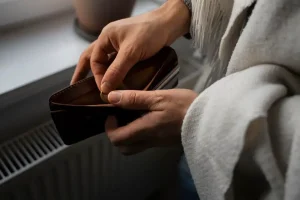Reclaiming Home: A Journey from Loss and Betrayal to Healing and Legacy
I. The Chilly Dawn of a Fateful Day
I remember that day with piercing clarity. The air was cold, and the sky was overcast in shades of grey, as if mirroring the numbness that had settled inside me. I had only recently accepted the heartbreaking truth that my father—the unwavering pillar of our family—had died unexpectedly. Amid the fog of grief and disbelief, I had steeled myself for sorrow, convinced that nothing could shatter my heart further. Yet no one could have predicted the storm of betrayal that would soon unfurl at the very home I had always known as a sanctuary of warmth and shared laughter.
II. Before the Tempest: Memories of a Once-Happy Home
A. The Early Years: A Home Built on Love
As a child, I learned that home was not defined solely by its walls but by the memories that came with it. When my parents separated, I chose to live with my father—not because I shunned my mother, whose gentle nature had always shone through—but because I could not bear to leave behind the familiar comforts of school, cherished friendships, and even the bedroom where I spent many peaceful nights. My dad, ever compassionate and steadfast, agreed wholeheartedly to provide a haven of stability and safety. Together, we forged a bond over fishing trips, bedtime stories, and playful quarrels about who would get the remote during late-night cartoons. In those moments, our modest home embodied love, security, and the quiet assurance that I was cherished.
B. The Arrival of a New Presence: Adjusting to a Blended Family
However, that sense of security was destined to face upheaval. The entrance of Sharon—my father’s new wife—and her adult children into the picture heralded a drastic change. Despite my efforts to reconcile with my stepmother’s presence, I swiftly sensed a chill behind her polite smiles. Sharon’s interactions were perfunctory, her kind words heavy with an undercurrent of disdain, often punctuated by remarks as trivial as complaints about an unwashed plate left behind, which, to me, were laden with unspoken messages: I did not belong.
My step-siblings, Mark and Lisa, mirrored that sentiment with an air of entitlement. Their behavior made it all too clear that they viewed me as an outsider in what they considered their rightful home. In the midst of these turbulent interactions, my father remained a constant source of protection—a buffer against their harsh jabs. His warm laughter and gentle admonishments softened the sting of exclusion and reassured me that, at least in his eyes, I was still home.
III. The Shattering Moment: A World Turned Upside Down
A. The Devastating Loss
Tragedy struck without warning on a seemingly ordinary Tuesday when news of my father’s sudden heart attack shattered my fragile equilibrium. In the midst of a routine day, I was abruptly cast into a realm of unending grief and disorientation. The funeral, a solemn ceremony marked by hushed voices and sympathetic glances, felt like a surreal blur; I moved among the mourners as if in a daze—an invisible ghost incapable of fully processing the overwhelming loss of the person who had always been my defender and anchor.
B. The Aftermath: Unforeseen Turmoil at Home
No sooner had I absorbed the finality of my father’s departure than I was confronted by an even more excruciating blow. In the wake of his death, something I could never have imagined transpired at the house I had grown up in—a house that had nurtured my dreams and sheltered my deepest memories. In a move that would forever redefine my sense of belonging, my stepmother Sharon and her children swept in and changed the locks, effectively severing my connection to the one place that had always embodied the essence of my family’s love.
IV. The Day the Sanctuary Became a Battleground
A. Seeking Refuge from the Storm
After the service, overwhelmed by an intangible mix of sorrow and foreboding, I did not return to the house. Instead, I sought solace in the familiar embrace of my closest friend Maddy’s home, just a few blocks away. For a moment, her family’s warmth offered a fragile shelter from the tempest of heartache, granting me the space I desperately needed to gather the scattered pieces of my shattered soul.
B. The Unwelcome Return: An Ominous Discovery
The following morning, a blend of duty and curiosity compelled me to revisit the home I had once known as my safe haven. Approaching the house, I noted immediately that it felt different. The driveway, typically dotted with the everyday bustle of life—a few familiar cars and the stray purr of a neighborhood cat—was curiously silent. My attention was drawn to the disarray on the porch: cardboard boxes were haphazardly stacked, their contents spilled carelessly onto the lawn. A surge of dread coursed through me when I spotted a box containing a cherished framed photograph—a snapshot of a blissful fishing trip with my father—tossed aside as if it were mere debris.
C. Locked Out and Left Behind
Trembling, I hurried to the front door, only to discover that it was now locked. My frantic attempts—rapping on the door, jiggling the knob—were met with silence. Finally, the door swung open to reveal Sharon, whose expression bore an air of smug authority. Behind her, Mark and Lisa lounged nonchalantly, their demeanors a combination of disdain and amusement.
“Who are you?” Sharon’s tone sliced through the cold air, icy and dismissive.
I stuttered in disbelief, struggling to form coherent words. “I…I’m your stepdaughter. I was living here.”
With a scoff, Sharon spat, “You never truly belonged here. With your father gone, this house is for our family now. Gather your things and leave immediately.” Her words stung as they confirmed my worst fears, and the utter betrayal cut deeper than any physical wound.
Lisa’s dismissive laughter followed, and Mark’s smirk only added to the bitter sense of isolation. Confused and heartbroken, I turned and fled, hastily gathering the few precious items I could cling to—a backpack, a bag of clothes, and the photograph that represented a lifetime of cherished memories. Tears blurred my vision as I ran into the indifferent chill of the day.
V. The Weight of Abandonment: Confronting the Pain of Betrayal
A. Standing on the Roadside: The Devastation of Rejection
Standing outside, I was overcome with a cascade of emotions—intense grief, searing anger, and a profound sense of betrayal. There, on the roadside, as Sharon slammed the door behind her without an ounce of remorse, I felt abandoned. The home that once echoed with laughter and whispered secrets of love had been wrenched away from me in one cruel, inexorable moment.
B. A Ray of Compassion: The Unexpected Kindness of a Neighbor
In the midst of this despair, a gentle, yet unexpected voice reached out to me. Mrs. Jenkins, our elderly neighbor—whom I remembered from childhood with a mix of bemusement and affection—approached slowly, her eyes soft with compassion. “If you need a place to stay, dear, you can use my spare couch,” she offered quietly. In that gesture, I sensed a lifeline, a simple act of kindness in a day that had been overwhelmingly dark. With nothing left to lose, I accepted her invitation, grateful for even the smallest haven in that turbulent moment.
C. Reaching Out for Connection: The Call to My Mother
That night, as I sat on the modest couch at Mrs. Jenkins’ home, my heart heavy with loss and betrayal, I knew I needed to reach out to the one person who had always been my steadfast refuge—my mother. With trembling fingers and a pounding heart, I dialed her number. When she answered, her voice brimmed with concern and urgency. “Mom, I’m here. I’m not in our house. They changed the locks. I’ve been pushed out.” In that instant, the crushing weight of isolation was partially lifted by her promise to come for me, reinforcing the belief that though I felt alone, I was not entirely abandoned.
VI. The Moment of Truth: A Mother’s Determined Intervention
A. Reconnecting and Revealing the Betrayal
Not long after, I heard the comforting sound of my mother’s car pulling into Mrs. Jenkins’ driveway. Rushing out to meet her, I embraced her, soaking in the reassurance and love that had always defined our bond. In the quiet of that encounter, her eyes shone with determination. “I need to tell you something important,” she said gently but firmly. “After your father passed, Sharon and her children changed the locks. They intended to force you out—to claim your father’s house as their own. But I have the final word.”
I listened, my pulse quickening with a mixture of dread and the flicker of hope that perhaps all was not lost. My mother continued, “I went to the courthouse. I had your father’s will reviewed carefully, and you will not be cast aside. This house is meant for you; it is your legacy.” In that moment, my mother’s resolve reawakened the embers of my strength. Despite the unbearable sorrow that still lingered, I understood that I had a cause worth fighting for—a cause that would enable me to reclaim not only the physical home but also the memories and love it represented.
B. The Legal Revelation: The Original Will and Our Inheritance
My mother retrieved from her car a worn leather folder, its contents sacred and pivotal. “Inside is the original will your father signed,” she explained, handing it to me. As I scanned the document, my eyes widened with both disbelief and a burgeoning sense of vindication. In unmistakable ink were the words that declared: “To my only child, with the instruction that this home shall remain the heart and soul of our family.” The confirmation struck me with a fierce mix of relief and empowerment. This was the turning point I needed—the final word that would, in time, protect my inheritance and restore the legacy my father had lovingly built.
VII. A Determined Fight: The Struggle to Reclaim My Home
A. Rallying Evidence and Gathering Support
In the days that followed the shocking eviction, I began the arduous process of gathering evidence and mustering support. Every piece of the disrupted home—the disarrayed boxes, the altered locks, and the scattered belongings—was documented meticulously with my phone’s camera. I reached out to friends, family, and even neighbors who shared memories of a happier past, and they offered not only empathy but also a willingness to testify on my behalf.
Messages of encouragement poured in, and I received countless calls from those who believed that what had happened was not just an assault on a physical space but a violation of everything my father had built for me. With that support, I felt a rekindling of strength—a determination to reclaim not only the house on Maple Lane but also the legacy of love it represented.
B. The Return to the House: Revisiting Every Memory
Armed with photographic evidence and the promise of legal recourse, I found myself drawn back to the house under a subdued, early morning light. Every step through the front door was weighted with memories—faded family photos, handwritten notes left on the mantle, and the subtle traces of my father’s presence imbued in the very fabric of the home. I revisited rooms that once echoed with shared laughter and togetherness, letting each memory reaffirm my right to belong there. With every step forward, the determination to fight back grew stronger, fueled by the thought that this sanctuary of precious memories was worth every battle.
C. Legal Advice and the Path to Justice
As my sense of injustice transformed into a robust resolve, I contacted a local attorney specializing in family property disputes. His guidance was measured and clear: “Hold your ground. The will is on your side, and with thorough evidence, you can compel them to honor your father’s wishes.” With his counsel, I began drafting formal letters to Sharon and her family, articulating my claim with the unyielding certainty of justice. Each word I wrote was a defiant stand against those who had sought to erase the legacy of my father from our home.









